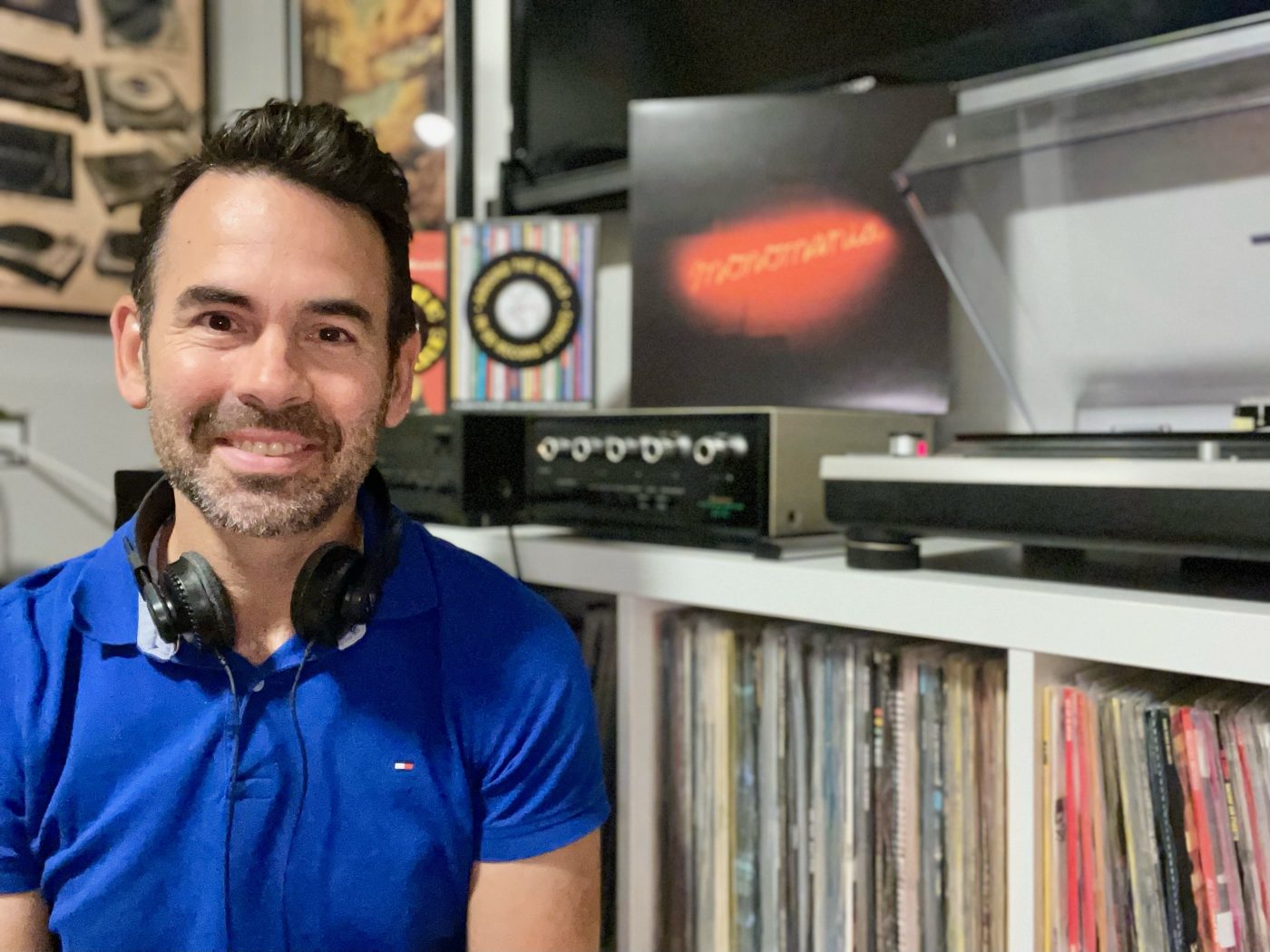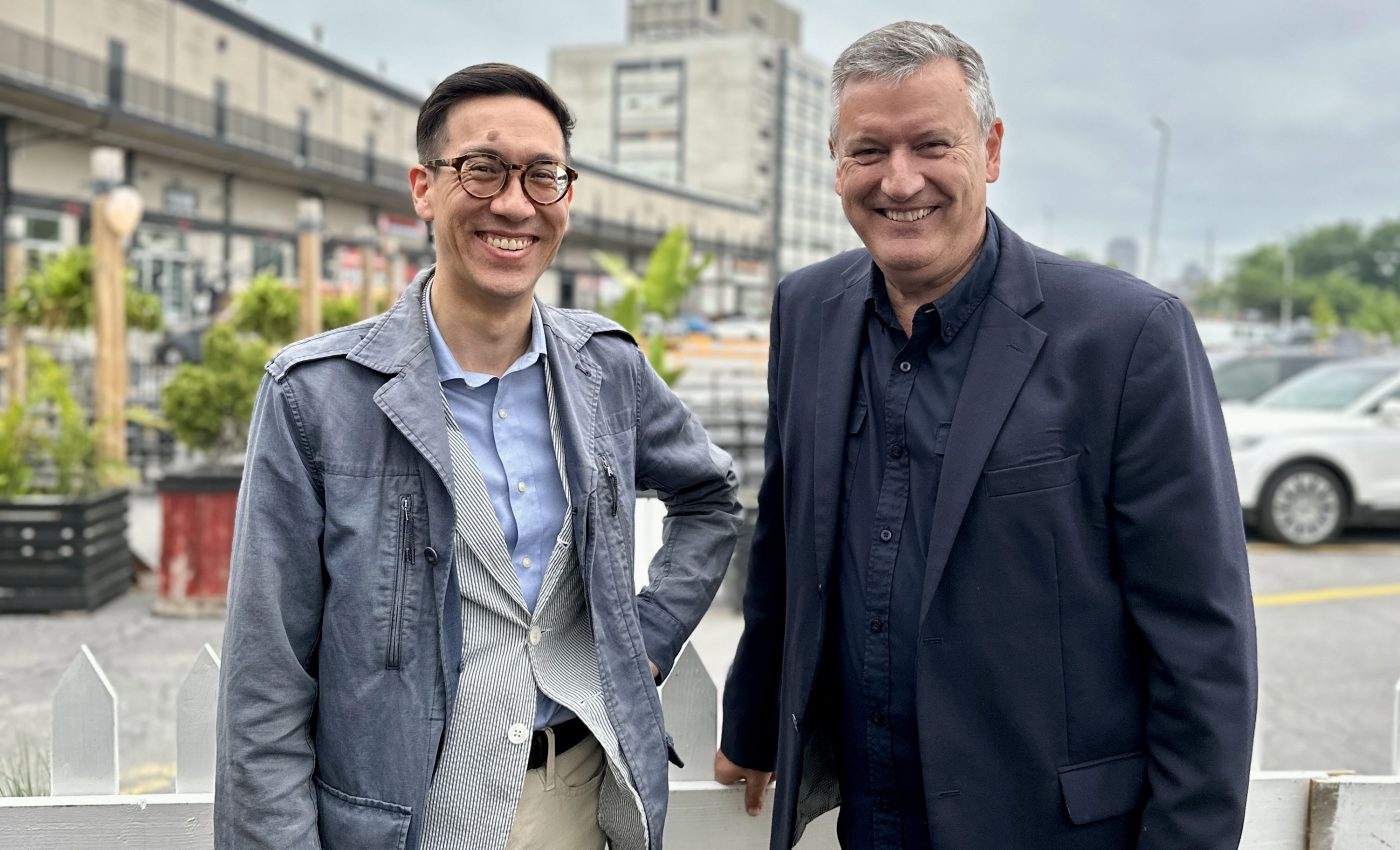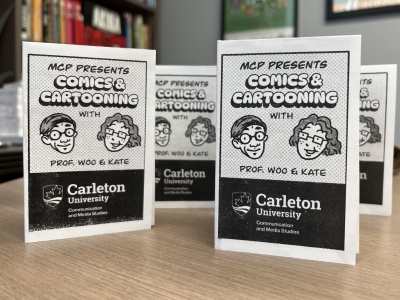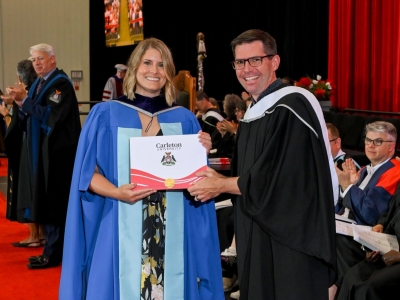Changes to the leadership team in the School of Journalism and Communication come into effect on July 1, with Allan Thompson taking over as Director and continuing as Journalism Program Head while Benjamin WOO Chun How assumes the duties of Associate Director and Program Head for Communication and Media Studies.
The leadership changes were made on an interim basis by the Dean of the Faculty of Public Affairs after Josh Greenberg announced his intention to end his second term as Director after three years. Greenberg has served for nine years in leadership roles in the School – eight of them as Director.

Photo of Dr Josh Greenberg
As Director, Greenberg provided strong and stable leadership to the School through periods of growth, renewal and crisis, and led major renovations such as the redesign of the Readers Digest Resource Centre, the transformation of the now defunct Carleton University Survey Centre into an interactive teaching classroom in Richcraft Hall 4308, and expansion of the School’s footprint to the second floor of Richcraft Hall.
“It has honestly been the professional honour of my life to lead the School and to lead the Communication program,’’ Greenberg told colleagues at a farewell event. “To look around the School and see the people that we have, it is a very special place to work.”
Greenberg was appointed in 2013 as Program Head in communication studies and interim Associate Director of the School, and set three major strategic objectives: to achieve net growth of faculty and staff in communication studies; to make the communication program a key player across campus by strengthening existing partnerships and establishing new ones; and to accelerate and grow the School’s research output and impact while maintaining its reputation for teaching excellence. He continued to advance these and other priorities after being appointed Director in 2014 (he was renewed for a second term in 2019).
Under Greenberg’s leadership, communication and media studies established a standalone degree when it phased out its BA offering and relaunched as a new Bachelor of Communication and Media Studies degree in 2016. In addition to its contributions to the Bachelor of Public Affairs and Policy Management and collaborative PhD specialization in Political Economy, the program now contributes to collaborative specializations in Global and International Studies, Data Science, African Studies, Latin American and Caribbean Studies, and Climate Change, and has been a key player in the new undergraduate certificate in science communication.
During Greenberg’s term as Director and Program Head, COMS added 12 new faculty members and multiple new staff, all of whom have contributed to the cultural and intellectual diversification of the School. He was instrumental in securing a new Canada Research Chair position specializing in communication and critical disability studies, a position the university is in the process of recruiting. He also established several new funding initiatives to support graduate student research and is excited to see the launch of a new international undergraduate student peer mentoring initiative that will begin in September. Greenberg is pleased to have worked closely with donors to establish two new endowed awards for undergraduate and graduate students in communication and media studies, specifically the Sons of Maxwell Award and the John Rainford Award in Health and Risk Communication.
Greenberg says he is proud of the leadership roles the School has played at Carleton, in Canada and internationally over the last decade. During his term, the School has been the editorial home of the Canadian Journal of Communication. It is currently the host to the new international journal Communication and Race.
Greenberg continued to be an active researcher and mentor during his years in School and program leadership. He was promoted to the rank of Full Professor during his term as Director and proudly supervised two doctoral students to completion and one postdoctoral fellow. He provided strategic advice and research support to public health agencies in Canada and around the world during the outbreaks of Ebola (2014-15) and Zika (2016) virus, and most recently the COVID-19 pandemic. His COVID-19 work attracted considerable media attention and he was the 2020 recipient of the Faculty of Public Affairs Public Commentary Award. Greenberg contributed to the development of the World Health Organization’s COVID-19 risk communication guidelines and recently co-authored a major report for the Canadian Food Inspection Agency and Health Canada/Public Health Agency of Canada on state-of-the-art research in health risk communication. In 2022 he published his latest co-edited book, Communication and Health: Media, Marketing and Risk (Palgrave).
“I will look back on my years in School and program leadership with fondness for the relationships built with colleagues inside the School and across campus,” Greenberg said. He says he looks forward to re-engaging with his research and (eventually) getting back into the classroom. He mostly looks forward to a well-earned rest and to continuing his research on risk and crisis communication, as well as building a new program of study on vinyl music and the social construction of audiophilia.

Photo of Associate Director Woo and Director Thompson
“In his nine years at the helm, Josh has built Communication and Media Studies into one of the best programs in the country,” Woo said. “More importantly, he has always modeled thoughtful, caring, and principled leadership.”
Woo is moving back into the School from his current position as Associate Dean, Equity & Inclusion, in the Faculty of Public Affairs.
Woo is an associate professor of communication and media studies and joined Carleton in 2014, having completed his doctorate at Simon Fraser University’s School of Communication and a SSHRC Postdoctoral Fellowship in the Department of English at the University of Calgary.
A leading researcher in the fields of comics studies and fan studies, Woo is the author of Getting a Life: The Social Worlds of Geek Culture, co-author (with Bart Beaty) of The Greatest Comic Book of All Time: Symbolic Capital and the Field of American Comic Books, and co-editor (with Jeremy Stoll) of The Comics World: Comics, Graphic Novels, and Their Publics, among other works. In 2020, he launched the Research on Comics, Con Events, and Transmedia Laboratory (https://roccetlab.ca) with funding from an Ontario Early Researcher Award.
“We’re all coming out of a challenging couple of years, and there’s no shortage of challenges on the horizon,” Woo said. “Watching people mobilize in response to the pandemic, the climate crisis, and the legacies of colonialism and systemic racism underscored how important communication that is both effective and ethical is for social change. I’m excited to return home to the School of Journalism and Communication and work with our students, staff, and faculty to continue our tradition of critical, reflective scholarship and education.”
Thompson was already serving as Journalism Program Head and Associate Director and as Director will now oversee overall management of the School of Journalism and Communication, completing Greenberg’s term, while continuing to run the journalism program.
Thompson has been the head of Carleton University’s journalism program since 2020. He joined Carleton in 2003 after 17 years as a reporter with the Toronto Star, Canada’s largest circulation daily newspaper. At Carleton he has published an edited collection called The Media and the Rwanda Genocide, The Canadian Reporter: News Writing and Reporting with colleagues Catherine McKercher and Carman Cumming, and the edited collection Media and Mass Atrocity: The Rwanda Genocide and Beyond.
Since his appointment as program head in 2020, Thompson’s primary focus has been implementing the journalism program’s equity, diversity and inclusion action plan and ramping up the journalism program’s research activity and public outreach.
Thursday, June 29, 2023 in Communication News, General, Journalism News, News
Share: Twitter, Facebook



